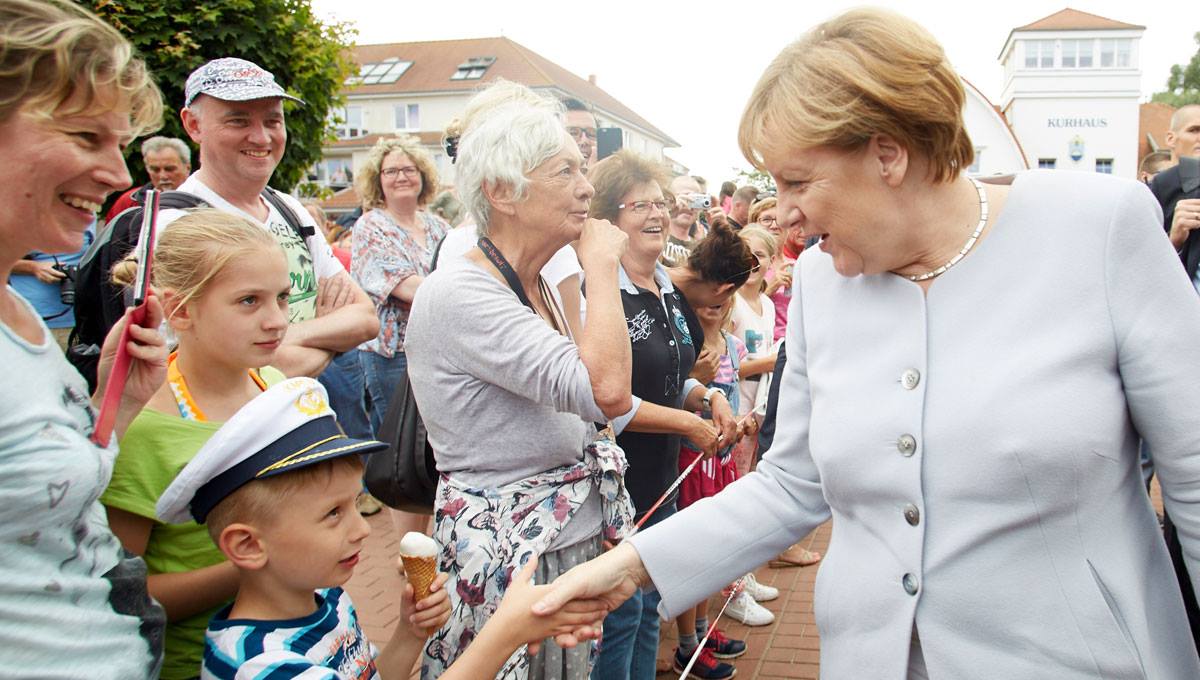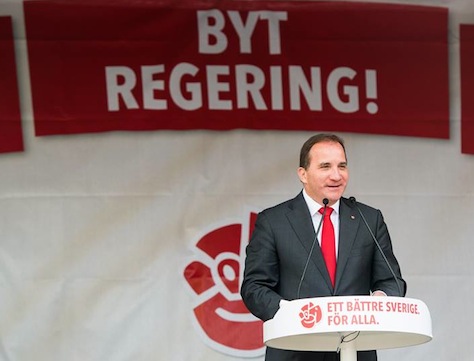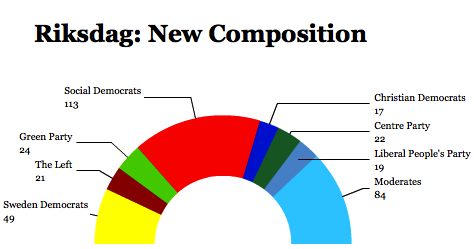
On September 4, German chancellor Angela Merkel will face one of her final electoral tests this year before most Germans believe she will attempt to win a fourth term in 2017.![]()
![]()
That test comes in Mecklenburg-Vorpommern, the sprawling state that flows across the north of what used to be East Germany and, as has been reported extensively, Merkel’s own home state. Voters will select all 71 members of the regional assembly, the Landtag, on Sunday, September 4.
Though the state is home to just 1.6 million people, it’s one of two state elections this month (the other is in the left-leaning Berlin on September 18), and it’s really the first political test since March of the appeal of the anti-immigrant and eurosceptic Alternative für Deutschland (AfD, Alternative for Germany) that hopes to win over 20% of the vote and, perhaps, edge out Merkel’s own party, the more center-right Christlich Demokratische Union Deutschlands (CDU, Christian Democratic Party).
The CDU, under Merkel’s leadership, has led Germany since 2005, and it has also served as a junior partner in a coalition government in Mecklenburg-Vorpommern since 2006, alongside the more dominant center-left Sozialdemokratische Partei Deutschlands (SPD, Social Democratic Party). Nationally, the CDU serves as the senior partners alongside the SPD in the second of two ‘grand coalitions’ that Merkel has headed since winning power over a decade ago.
As Europeans weigh the wisdom of Nice’s ill-fated (and judicially reversed) decision to ban ‘burkinis’ and as Germany’s state interior ministers try to adopt a limited burqa ban in public spaces, Merkel’s popularity is still sagging from a decision last summer — easily the boldest of her political career — to permit nearly one million Syrian refugees to settle in Germany at the height of the largest wave of migration in Europe since World War II.
Polls show that the AfD is roughly tied with, or even leading, the CDU in the state, each with anywhere from 19% to 23% of the vote, with the SPD leading in the range of between 24% and 28%. In a series of state elections earlier this year, the AfD performed best in the east German state of Saxony-Anhalt, winning nearly 25% of the vote there in March.
But reports that Merkel’s decision about whether to seek a fourth term — or the contours of a national election next September — could be significantly affected by a regional election in one of Germany’s most sparsely populated states are misguided. Barring a more lopsided upset, the SPD-CDU coalition is almost certain to continue under the state’s minister-president since 2008, social democrat Erwin Sellering. Though the refugee crisis has dented Merkel’s popularity, the CDU holds a wide lead nationally over the SPD and Germany’s other parties, though the AfD is now winning the support of between 10% and 15%, which would be enough to make it Germany’s third-most popular party. Victories in a handful of states is a far different thing that sustaining support until next year’s election, especially as the AfD has suffered from a self-inflicted internal leadership struggle.
Though Merkel may have grown up in Mecklenburg-Vorpommern, the CDU has never particularly been popular in the east. In the last state election in 2011, the CDU struggled too, but it was instead against Die Linke (The Left). In fact, the hard left is set to lose even more support from 2011 than the CDU. Five years ago, the CDU won 23.1% of the vote, a standard it might well replicate this year. But Die Linke is forecasted to win far less than the 18.4% it won in the 2011 election. There’s no doubt that the AfD poses a direct threat to the CDU, both in Mecklenburg-Vorpommern and nationally because so many conservative Germans worry about the effects of resettling nearly a million Syrian refugees. But the AfD, especially in the east, seems to be taking votes from nationalist-minded voters on the left too, especially from Die Linke, a party with its roots in East Germany’s Soviet-era Communist Party.

